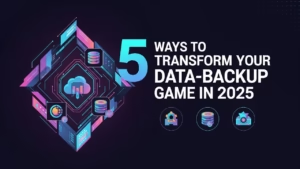In 2025, fintech has moved from disruption to foundation. What was once an emerging sector is now responsible for over 3% of global banking and insurance revenues, growing at an impressive 21% year-over-year (Avenga). With digital-first habits cemented during the pandemic and investor confidence resurging, fintech has become the pulse of innovation in finance. But the real story? It’s not just about growth, it’s about responsible scaling, strategic regulation and the rise of AI-powered, human-centered finance.
AI Isn’t the Future—It’s Now
Artificial Intelligence, particularly Generative AI, has become a critical infrastructure layer for fintechs. From fraud prevention to customer service to compliance workflows, AI is helping streamline decision-making while enhancing user experience. Major players like JPMorgan Chase are investing heavily in AI to manage risk, automate repetitive processes and reduce fraud (Reuters).
Startups like Neurofin, backed by over $1.6 million in seed funding, are using GenAI to automate compliance infrastructure for regulated financial firms (Economic Times). The bottom line? AI is no longer a “nice-to-have”, it’s the core operating system of modern fintech.
Embedded Finance is Eating the World
One of the biggest paradigm shifts is the surge in embedded finance. Financial services are increasingly being baked into everyday non-financial apps, think e-commerce platforms offering instant credit or rideshare apps enabling savings accounts. This seamless integration is not only improving user experience but also opening up new monetization models (Avenga).
At the same time, open finance is expanding the data-sharing ecosystem beyond traditional banking. Countries like the UK, Singapore, Canada and Australia are pushing forward with frameworks that allow secure access to insurance, pension and investment data via APIs (Wikipedia – Open Finance). For fintech builders, this unlocks a new era of personalization and cross-service intelligence.
Compliance Isn’t Optional, It’s Strategy
Gone are the days when compliance was an afterthought. Fintech firms are now building regulatory adherence directly into product design. The stakes are high: Monzo was recently fined £21 million for anti-money laundering (AML) failures, marking a significant industry wake-up call (FT).
And as traditional banks like JPMorgan begin charging fintechs for access to customer account data, new commercial pressure is being placed on how APIs are monetized, especially for data-hungry apps (Reuters). The message is clear: compliance must be deeply integrated into both the technical and business strategy of any fintech firm.
Consolidation and Cross-Border Listings
After a slow 2023, mergers and acquisitions are picking up steam in 2025. Many fintechs are opting for consolidation to gain scale, simplify regulatory paths and accelerate international expansion. Meanwhile, IPO interest is heating up again. UK digital bank Starling is reportedly exploring a listing in New York, following the paths of Wise and Revolut (Financial Times).
Professionals in fintech—especially those in strategy, corporate development or investor relations, should pay close attention to this landscape. Every consolidation unlocks new career, product and partnership opportunities.
Cybersecurity: The Silent Battlefield
As AI becomes the core engine of fintech operations, cybersecurity risks are evolving in real time. A recent report listed at least 11 emerging cyber threats to fintechs globally, especially those using large-scale AI or automation tools (arXiv). For any digital financial service today, building a secure tech stack isn’t an option, it’s survival.
What This Means for Fintech Professionals
This landscape signals a new blueprint for fintech leadership and talent development.
First, cross-functional expertise is now gold. Professionals who understand the intersection of technology, compliance and customer experience are leading transformation.
Leadership isn’t just about growth, it’s about navigating complexity. Firms are looking for people who can make GenAI practical, turn regulation into a product feature and build scalable, ethical platforms.
Second, the skill shift is real. According to the Georgia Fintech Academy, roles in AI architecture, cybersecurity and compliance tech are commanding higher compensation and will dominate hiring pipelines through 2026 (Georgia Fintech Academy).
And finally, culture matters more than ever. In an era where talent can cross borders and regulation evolves fast, the most resilient fintechs are those where risk culture, innovation and agility coexist. That’s not just a founder mindset, it’s a company-wide operating principle.
Fintech’s Future Is Human, Secure and Scalable
Fintech in 2025 is not about who can build faster, it’s about who can build smarter, safer and more ethically. Whether you’re an executive, strategist, developer or operator, the real opportunity lies in integrating intelligence with intention. Stay close to the customer. Learn the rules, then innovate within them. And most importantly, treat AI not as a magic wand, but as a toolkit for building trust at scale.
Explore more insights from AI in financial services:
Rockbird Media Sparks Innovation at First Finance Tech Community Event




















